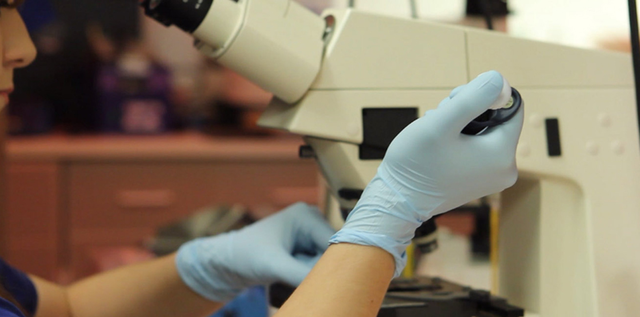
20:55 9th February 2016 | Insemination
Cervix Sperm IUI Intrauterine Insemination Fertilisation IVF
For a woman to get pregnant, a man’s sperm must travel from the vagina through the cervix into the womb and up into one of the fallopian tubes. If the sperm arrives in the tubes soon after the release of the egg from the ovary(ovulation), the sperm and egg can meet in the tube and fertilisation may occur.
The cervix limits the number of sperms that enter the uterus, so only a few sperm make their way to the fallopian tubes. Intrauterine insemination (IUI) is a procedure that bypasses the cervix and places sperm directly into the woman’s uterus around the time of ovulation. Inserting the sperm directly into the uterus makes the trip to the fallopian tubes much shorter and improves the woman’s chances of getting pregnant.
IUI is particularly helpful for women who do not ovulate regularly or women whose cervix's have been scarred from surgery. This scarring can prevent the sperm from entering the uterus from the vagina. It is also recommended when the male partner has a low sperm count or if the mobility of his sperm is impaired or if he has trouble achieving an erection or ejaculating. It’s important to note that men can collect and freeze their sperm to be used for IUI at a later date.
IUI is a simple procedure which is performed when the woman is ovulating. Once collected, the semen sample is washed in the laboratory in order to concentrate the sperm and remove the seminal fluid. The woman lies on an examining table and the doctor inserts a speculum into her vagina. A catheter (narrow tube) is inserted through the cervix into the uterus and the washed semen sample is slowly injected. Usually this procedure is quite painless, but some women have mild cramps.
The success of IUI depends on the cause of the couple’s infertility. It works best for men when the majority of their sperms do not move and for women whose cervix prevents sperm from entering their uterus. It does not work as well for men who produce fewer sperms. It also does not help women who have severe fallopian tube disease, moderate to severe endometriosis, or a history of pelvic infections.
Generally speaking, if insemination's are performed monthly with fresh or frozen sperm, success rates can be as high as 20 percent per cycle depending on whether fertility medications are used; the age of the female partner and other factors. In comparison to IVF, IUI is a more cost effective form of treatment but it is only effective for certain medical conditions. Your fertility specialist will tell you if it will work for you.
Search by condition, treatment or keyword and conveniently browse our informative articles
Book an appointment online or search for a clinic close to you.
Book an Appointment